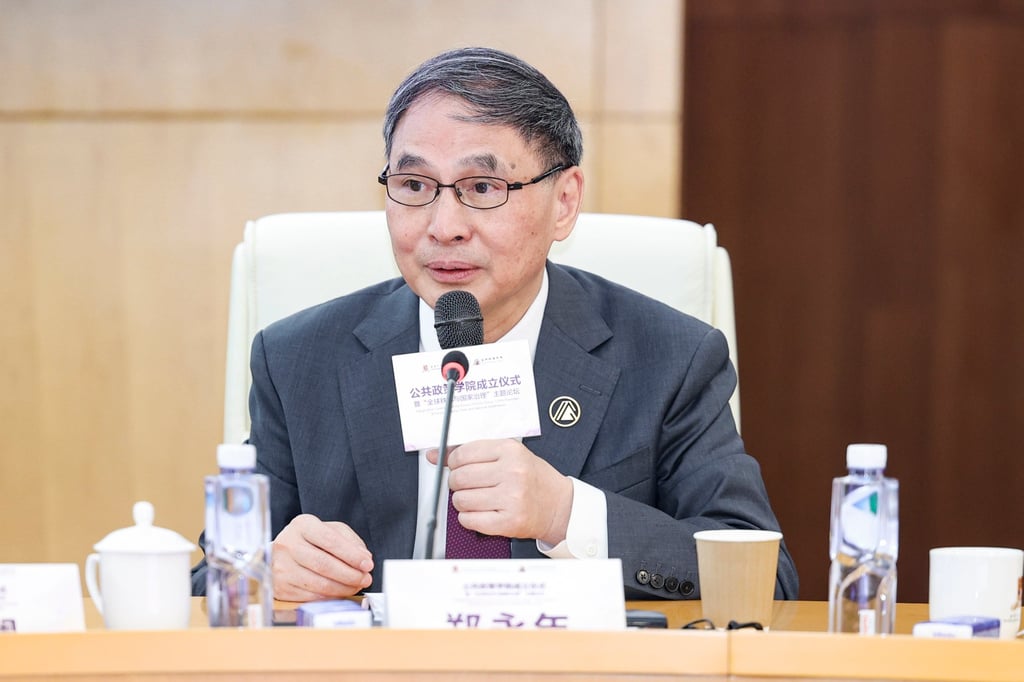Zheng Yongnian is a leading political scientist and government adviser in China. His academic work is mainly about contemporary politics, the country’s transformation and external relations. In his second in-depth interview with the Post, Zheng discusses AI governance and how China can consolidate its narrative amid growing geopolitical risks. This interview first appeared in SCMP Plus. For other interviews in the Open Questions series, click here.
Advertisement
For many years, you have called for the rebuilding of China’s own knowledge system. Recently, you have also voiced concerns about “intellectual colonialism” in the artificial intelligence era. Can you elaborate?
The concerns mainly refer to challenges in China’s social sciences which originated from the West.
Religions, ideology, values – as Samuel Huntington explained in his book The Clash of Civilisations – are important for any nation. And the meaning of society and technology is determined by the humanities and social sciences.
Chinese researchers learned and adopted theories of Western social sciences, but these are based on Western methods that summarise Western practices and experiences, and are then used to explain Western society.
Advertisement
Those theories have failed to explain Confucian civilisation, the Islamic world and Indian society. We should fully embrace our secular civilisation, and thereby play a proper role in the international order.


